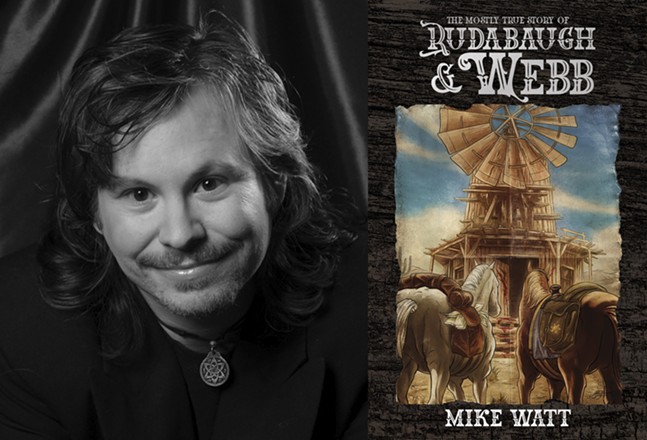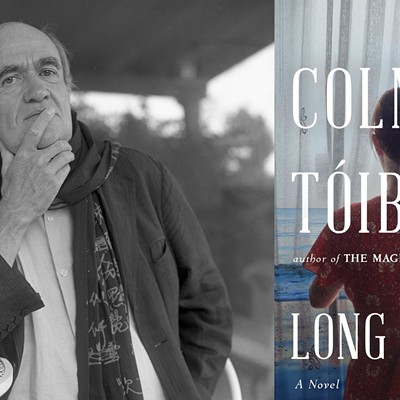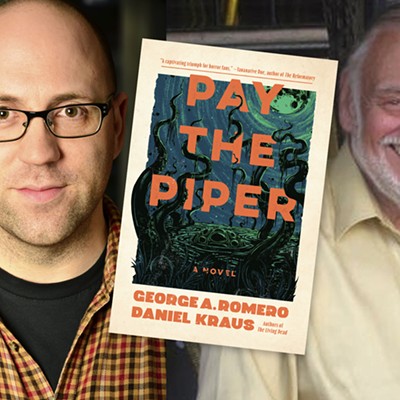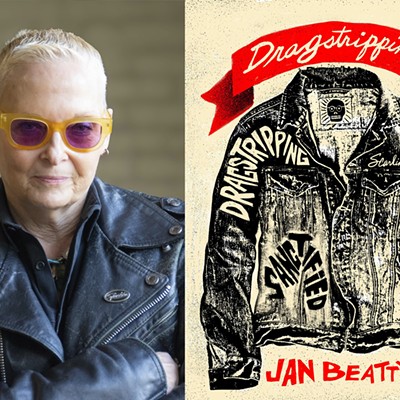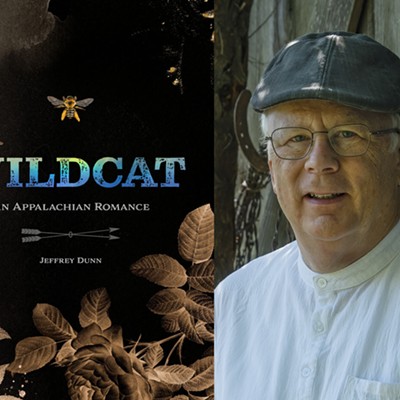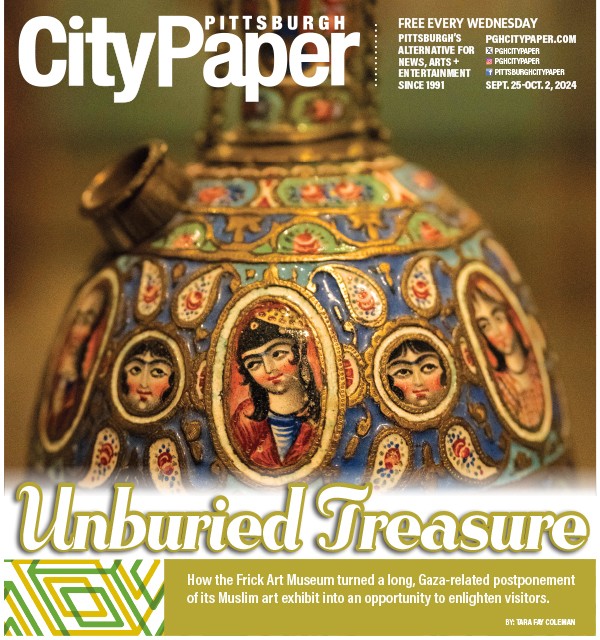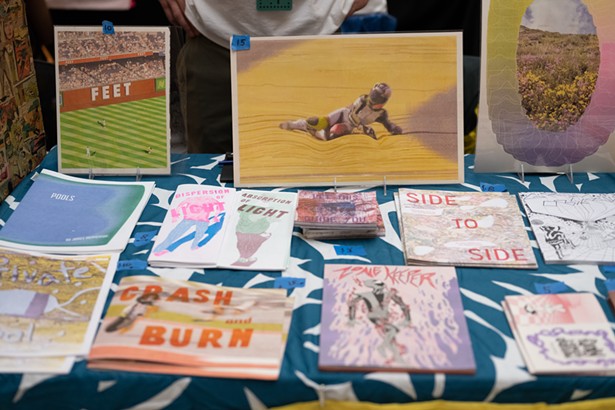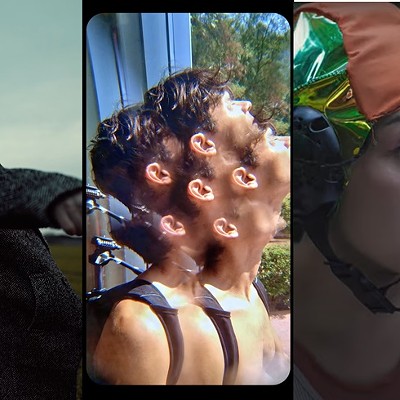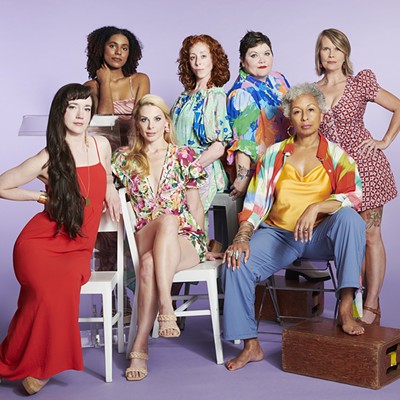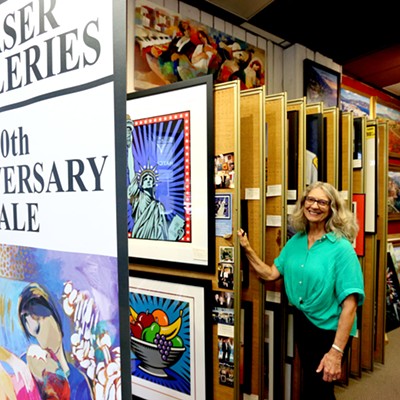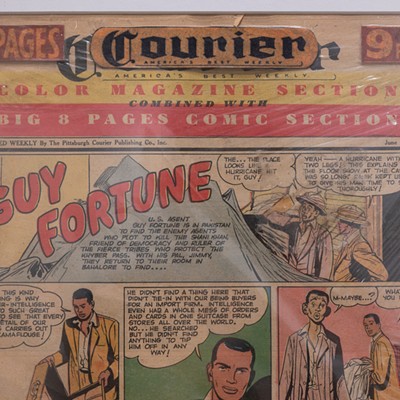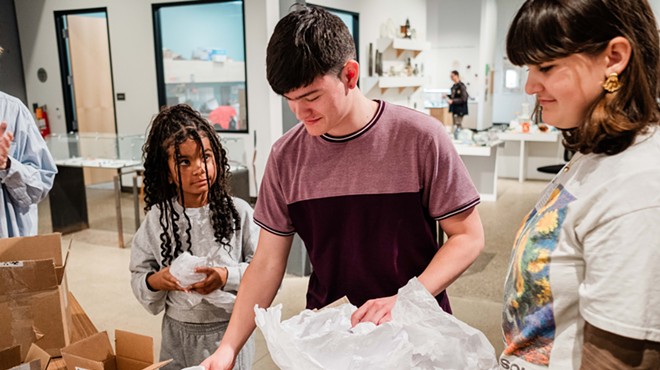Author Mike Watt trades horror for the Wild West with the story of two real-life outlaws
[
{
"name": "Local Action Unit",
"component": "24929589",
"insertPoint": "3",
"requiredCountToDisplay": "1"
}
]
Mike Watt didn’t intend to write a novel that echoes Zane Grey or Louis L’Amour. The horror author thought his latest book would tred more familiar ground, with zombies, ghosts, and other similar creatures interacting with cowboys.
But Watt, a local filmmaker, writer, and journalist who has written for magazines including Fangoria and Cinefastique, didn’t account for Dave Rudabaugh and John Joshua Webb.
“The more research I did into it, the more I discovered,” Watt tells Pittsburgh City Paper about his book, The Mostly True Story of Rudabaugh and Webb (Encyclopocalypse). “No one’s ever told J.J. Webb’s story. No one’s told Dave Rudabaugh’s story. There’s this whole missing piece of this not talked about ... So, I put the wizards aside, I put the vampires aside, and kept the outlaws.”
He adds that Rudabaugh may conjure the 1990 film Young Guns II, in which actor Christian Slater played the 19th-century robber, cattle rustler, and murderer.
Set in Las Vegas, N.M., the book is a gritty tale of the West, complete with requisite fights, violence, saloons, and hardscrabble lives. And it’s mostly true. During COVID, Watt did copious research – “The Carnegie InterLibrary system is great” – to flesh out his tale. He read diaries and newspaper accounts from the era. But mostly, Watt tried to imagine what life was like in the era.
He found one thing to be true, then and now — at one point in The Mostly True Story of Rudabaugh and Webb, a character named Jake Allen says he wants to be remembered for his misdeeds, just as people now crave fame, lasting or fleeting.
“Sometimes mayhem is all you have,” Watt says. “Gunfights were like TikTok back then. They didn’t happen all that often, though. So, in a lot of towns like East Las Vegas … these were the bad guys. There was a lot of attraction there to try and show down these guys who were showing up in things like medicine shows.”
Watt’s research shows that gunfights, as portrayed in films, were not the usual occurrence. He found that Doc Holliday, while often challenged, rarely drew his gun. The legends of other gunfighters were also exaggerated.
“I was trying to explore myths and deconstruct them at the same time,” Watt says. “I tried to walk the fine line between fantasy and reality. The romance we have of the West, most of these guys were uneducated, mostly drunk. Even the guys we admire were pimps and hustlers. Jessie James was a psychopath. We romanticized a lot of this.”
Watt thinks Bat Masterson was altruistic and Pat Garrett had “wonderful interests in his heart beyond his political goals.”
But when he started to write about Rudabaugh, it was from a blank slate.
“I knew where Dave Rudabaugh was in 1879, 1880,” Watt says. “I knew I could pinpoint him in history, but I didn’t know a damn thing about him as a person because he doesn’t write about himself. There’s nothing. There are no first-hand accounts, aside from the newspapers. And as I pointed out, newspapers weren’t in it for the news.”
The dialogue in Rudabaugh and Webb is partially culled from newspapers, which, at the time, were then more akin to a tabloid like the National Enquirer than the New York Times. Watt also used the HBO series Deadwood as a touchstone to flesh out speech patterns and linguistic idiosyncrasies.
But Watt mostly mined historical accounts to give his story veracity.
“I knew that J.J. had a little more education than Dave did,” he says. “[Old West lawman-turned-criminal Dave Mather, who also appears in the book] was allegedly a college graduate, so I knew I could hear him speak in very flourishing sentences.
Watt adds, “But most of these guys were rough and tumble, they expressed themselves through drunken slurs and their fists. I had to watch so they weren’t too much Hollywood. But at the same time, it’s fun do that.”
But Watt, a local filmmaker, writer, and journalist who has written for magazines including Fangoria and Cinefastique, didn’t account for Dave Rudabaugh and John Joshua Webb.
“The more research I did into it, the more I discovered,” Watt tells Pittsburgh City Paper about his book, The Mostly True Story of Rudabaugh and Webb (Encyclopocalypse). “No one’s ever told J.J. Webb’s story. No one’s told Dave Rudabaugh’s story. There’s this whole missing piece of this not talked about ... So, I put the wizards aside, I put the vampires aside, and kept the outlaws.”
He adds that Rudabaugh may conjure the 1990 film Young Guns II, in which actor Christian Slater played the 19th-century robber, cattle rustler, and murderer.
Set in Las Vegas, N.M., the book is a gritty tale of the West, complete with requisite fights, violence, saloons, and hardscrabble lives. And it’s mostly true. During COVID, Watt did copious research – “The Carnegie InterLibrary system is great” – to flesh out his tale. He read diaries and newspaper accounts from the era. But mostly, Watt tried to imagine what life was like in the era.
He found one thing to be true, then and now — at one point in The Mostly True Story of Rudabaugh and Webb, a character named Jake Allen says he wants to be remembered for his misdeeds, just as people now crave fame, lasting or fleeting.
“Sometimes mayhem is all you have,” Watt says. “Gunfights were like TikTok back then. They didn’t happen all that often, though. So, in a lot of towns like East Las Vegas … these were the bad guys. There was a lot of attraction there to try and show down these guys who were showing up in things like medicine shows.”
Watt’s research shows that gunfights, as portrayed in films, were not the usual occurrence. He found that Doc Holliday, while often challenged, rarely drew his gun. The legends of other gunfighters were also exaggerated.
“I was trying to explore myths and deconstruct them at the same time,” Watt says. “I tried to walk the fine line between fantasy and reality. The romance we have of the West, most of these guys were uneducated, mostly drunk. Even the guys we admire were pimps and hustlers. Jessie James was a psychopath. We romanticized a lot of this.”
Watt thinks Bat Masterson was altruistic and Pat Garrett had “wonderful interests in his heart beyond his political goals.”
But when he started to write about Rudabaugh, it was from a blank slate.
“I knew where Dave Rudabaugh was in 1879, 1880,” Watt says. “I knew I could pinpoint him in history, but I didn’t know a damn thing about him as a person because he doesn’t write about himself. There’s nothing. There are no first-hand accounts, aside from the newspapers. And as I pointed out, newspapers weren’t in it for the news.”
The dialogue in Rudabaugh and Webb is partially culled from newspapers, which, at the time, were then more akin to a tabloid like the National Enquirer than the New York Times. Watt also used the HBO series Deadwood as a touchstone to flesh out speech patterns and linguistic idiosyncrasies.
But Watt mostly mined historical accounts to give his story veracity.
“I knew that J.J. had a little more education than Dave did,” he says. “[Old West lawman-turned-criminal Dave Mather, who also appears in the book] was allegedly a college graduate, so I knew I could hear him speak in very flourishing sentences.
Watt adds, “But most of these guys were rough and tumble, they expressed themselves through drunken slurs and their fists. I had to watch so they weren’t too much Hollywood. But at the same time, it’s fun do that.”

